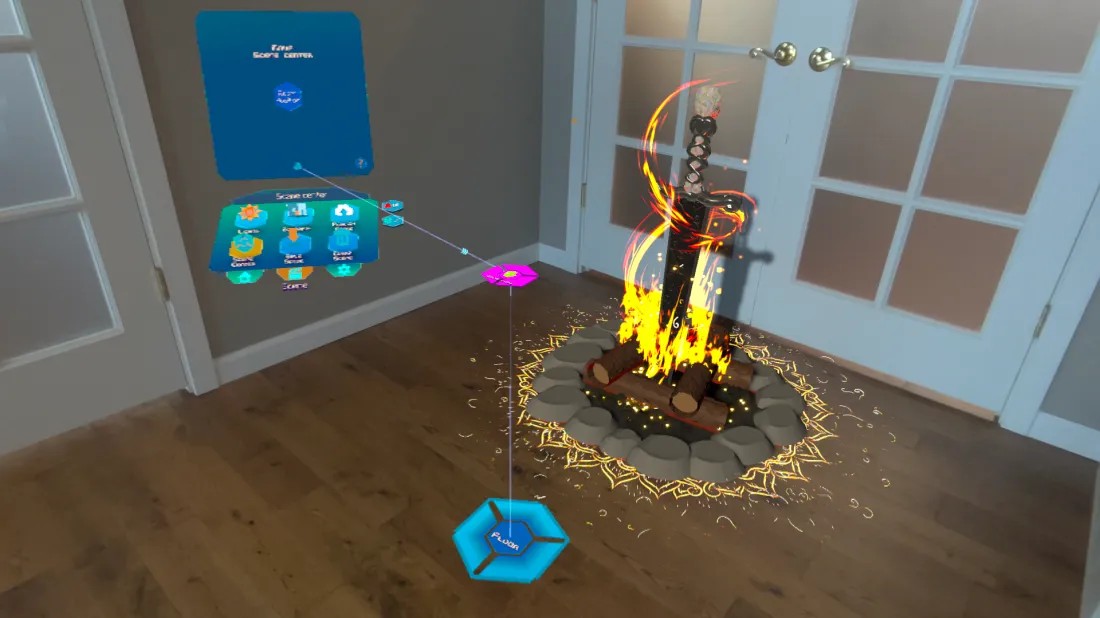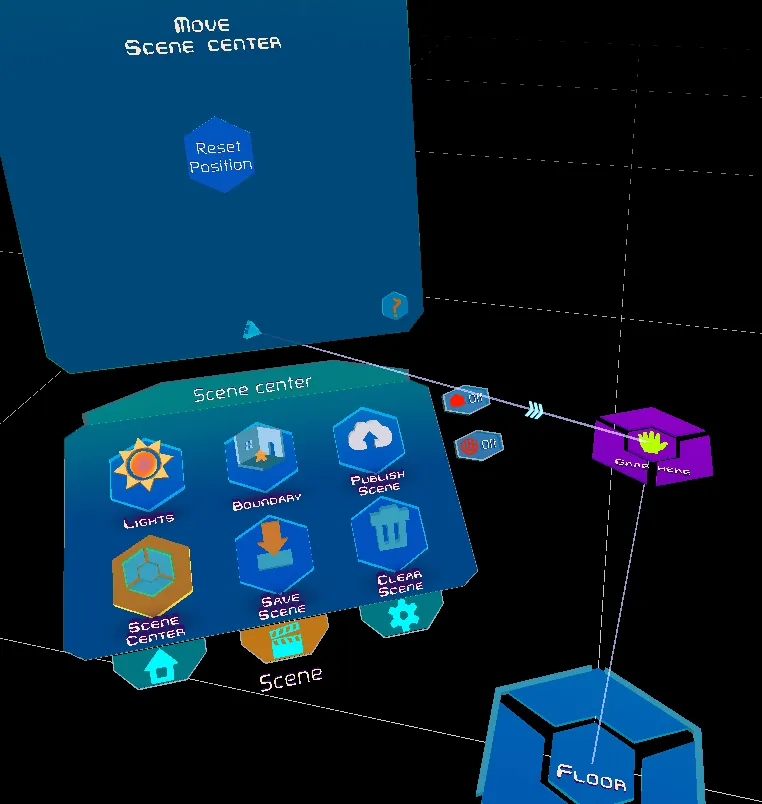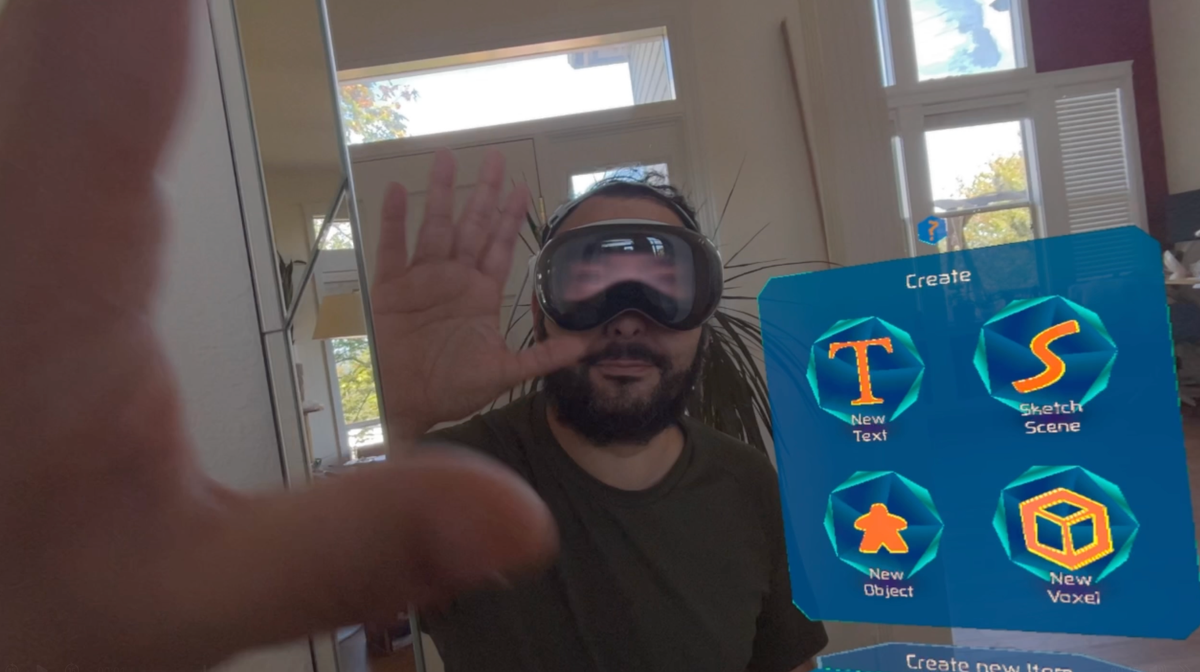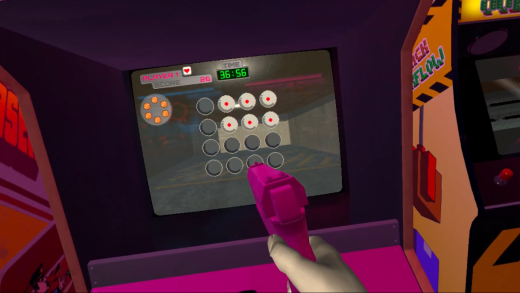
Figmin XR features a colocation system for headsets to unlock same-room multiplayer as well as emergent remote interactions.
The way to make it happen is to understand this “Scene Center” menu:

That purple thing that says “Grab here”? Grab it and move the blue pad on the floor to a spot in the center of your room. Now do the same thing in another VR headset running Figmin XR and place the blue pad in the exact same spot and facing the same direction.
Then join the same multiplayer room. Everything made in these headsets will be colocated to the same position relative to the blue pad anchor on the floor. I’ve tested colocating Quest 3, 3S, and Vision Pro with Figmin XR, and lining up the blue pad to the same spot in each system is both straightforward and hard to get perfect. Once synced up well, though, I turned the 3S into a mixed reality camera, pointing it at my play area while capturing what a Vision Pro and Quest 3 each make in the room.
Rewiring How You Think About Space
Figmin XR Supports Colocated Multiplayer Between Quest 3 & Apple Vision Pro
Creative sandbox Figmin XR supports colocated mixed reality from Apple Vision Pro to Quest 3.

Having two, three or even more headsets sharing a reference point means that when Don Hopper joined the Figmin room remotely, we could tour each other’s spaces by simply walking from room to room. He outlined his TV in his living room for me and walked to his office across a large home in Missouri. In New York, I walked from my tiny office to my tiny living room and outlined the shape of my TV using Tilt Brush.
We essentially gave one another a quick tour of places we’ve never been and will probably never visit. I could see his head moving through space as a blue oval and he narrated on voice chat which room he was passing through. It was just enough detail to start making a mental map of Don’s house and workspace.
Some apps have offered similar features for years and on some Quest headsets, anchor-sharing is automatic. Lining up spaces is also the same idea Space Pirate Trainer DX uses for arena-scale multiplayer. With Figmin XR’s release for Apple Vision Pro, the $20 tool becomes the only one we know about with such robust support across so many different headsets. You should be able to colocate a Quest 3S, 3 and 2 with a Vision Pro and assorted other devices, making for tens of millions of opportunities to put multiple people in the same creative Figmin sandbox together.
Whether your investment in multiple standalone VR headsets is $500 or $4000, Figmin XR’s menu here is the key to putting 3D objects, Tilt Brush works, voxel objects, YouTube videos and gifs all over the house such that when another headset joins the digital room, they’ll be able to make sense of where you spend your time in your physical room relative to your digital creations.
Colocation unlocks a lot of opportunities to explore a range of ideas to think about for the future. For example, it’s possible to outline the major features of your house so a remote friend could “come over” while you’re away and place a funny gif on your dining room table that you find the next time you open up the app.
We know there are other uses for colocation out there and you can always email us with them at [email protected]. We’d love to see what others do with their implementations.
Find Figmin XR on your platform of choice from Overlay’s website.


